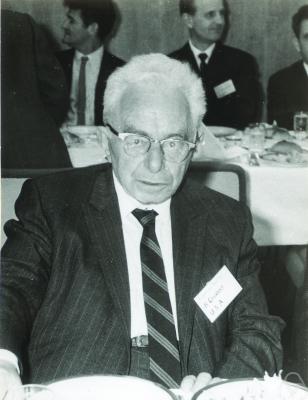1.
For scholars and laymen alike it is not philosophy but active experience in mathematics itself that can alone answer the question: What is mathematics?
Richard Courant
2.
Calculus is the outcome of a dramatic intellectual struggle which has lasted for twenty-five hundred years.
Richard Courant
3.
With an absurd oversimplification, the 'invention' of the calculus is sometimes ascribed to two men, Newton and Leibniz. In reality, the calculus is the product of a long evolution that was neither initiated nor terminated by Newton and Leibniz, but in which both played a decisive part.
Richard Courant
4.
Mathematics as an expression of the human mind reflects the active will, the contemplative reason, and the desire for aesthetic perfection.
Richard Courant
5.
With an absurd oversimplification, the "invention" of calculus [method in mathematics] is sometimes ascribed to two men, Newton and Leibniz.
Richard Courant
6.
Mathematics as an expression of the human mind reflects the active will, the contemplative reason, and the desire for aesthetic perfection. Its basic elements are logic and intuition, analysis and construction, generality and individuality. Though different traditions may emphasize different aspects, it is only the interplay of these antithetic forces and the struggle for their synthesis that constitute the life, usefulness, and supreme value of mathematical science.
Richard Courant
7.
Euler - The unsurpassed master of analytic invention.
Richard Courant
8.
It becomes the urgent duty of mathematicians, therefore, to meditate about the essence of mathematics, its motivations and goals and the ideas that must bind divergent interests together.
Richard Courant
9.
Starting in the seventeenth century, the general theory of extreme values - maxima and minima - has become one of the systematic integrating principles of science.
Richard Courant

